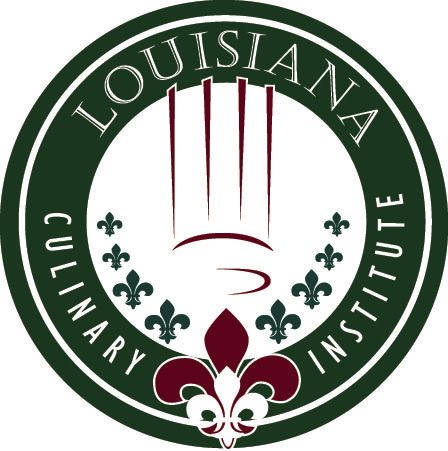OVERVIEW
COURSE DESCRIPTIONS
3rd Semester (Red Level)
CA 222-Restaurant Production V (30 Lab Clock Hours/ 1 Semester Credit Hour) – Students learn “A La Carte” production techniques and procedures used in full service restaurants while cooking food menu courses for the faculty/staff/student meal service.
CA 232-Restaurant V (30 Lab Clock Hours/ 1 Semester Credit Hour) – Students continue to demonstrate proficiency in front of the house service techniques, as well as focusing on front of the house management techniques. Students begin to learn table-side service and higher service standards.
CA 311-Wine Fundamentals (30 Lecture Hours / 2 Semester Credit Hours) – This is a thorough introductory course on wine which presents culinary arts and hospitality students with the practical and detailed knowledge necessary to manage wine and wine sales. The course encompasses the basics of wine, the wine regions of the world, types of wine and the business of wine.
LS 200 – Career Management (Humanities) (30 Lecture Clock Hours/ 2 Semester Credit Hours)* – This course provides students with an overview of skills they learned in previous courses relating to achieving success in the workplace. Specific topics include transforming personal interests into professional goals; searching for, securing, and maintaining employment; seeking out and making networking opportunities; and professional development.
CA 221-Restaurant Production IV (30 Lab Clock Hours/ 1 Semester Credit Hour) – Students continue to use their cooking techniques in preparing menu items for the faculty/staff/student meal service. This kitchen production laboratory is designed for the student to continue practicing the proper cooking methods in preparing quality food menu items with special emphasis on the more advanced recipes.
CA 231-Restaurant Service IV (30 Lab Clock Hours/ 1 Semester Credit Hour) – Students continue to use their learned techniques in serving food and beverage menu items for the faculty/staff/student meal service. Additionally, students demonstrate proficiency in front of the house service.
NUT 201-Nutrition (Natural or Applied Science) (30 Lecture Clock Hours/ 2 Semester Credit Hours)* – This course is thorough overview of basic nutrition. This course offers the student a thorough and up-to-date overview of information on nutrition and diet and includes topics such as the latest Dietary Guidelines for Americans, My Pyramid, balanced menu options, basic principles of food presentation, meeting special dietary needs, and weight management.
MAT 102-Controlling Costs (Mathematics) (30 Lecture Clock Hours/ 2 Semester Credit Hours)* – This course focuses on the mathematics and decision-making required to control the costs within the foodservice industry. Topics include accounting and profitability, as well as other necessary components needed to effectively and successfully manage a restaurant.
CA 223-Restaurant Production VI (30 Lab Clock Hours/ 1 Semester Credit Hour) – Students continue to hone their A La Carte production techniques while focusing on managing the kitchen to produce the faculty/staff/student meal.
CA 233-Restaurant Service VI (30 Lab Clock Hours/ 1 Semester Credit Hour) – Students continue to hone their serving techniques while focusing on managing the front of the house in a fine-dining establishment.
PSY 201-Psychology for Leadership (Behavioral Science) (45 Lecture Clock Hours/ 3 Semester Credit Hours) – This course is a study of the psychology used by leaders and managers in the business world. This course covers the many aspects of psychology needed by leaders and managers in today’s businesses in order to manage personnel more effectively. The course subjects include psychology for successful leading, forging a common direction, working together, making use of problems and barriers, and becoming leaders.
4th Semester (Green Level)
HCM 303-Human Resource Management and Supervision (60 Lecture Clock Hours/ 4 Semester Credit Hours)+ – This course includes the basic principles of effective human resource management and supervision. Students will explore the nuances associated with the employer – employee relationship, from recruiting competent staff, proper compensation, retention and finally termination. This is a National Restaurant Association Educational Foundation (NRAEF) ManageFirst Program® course. Students are eligible to take the NRAEF certification test upon completion of this course.
HCM 301-Small Business Development and Entrepreneurship (60 Lecture Clock Hours/ 4 Semester Credit Hours)+ – This course explores the foundation of business and entrepreneurship. Students examine business structures, ethics, and laws, as well as the qualifications required to establish a successful entrepreneurial enterprise.
HCM 232-Hospitality Accounting (30 Lecture Clock Hours/ 2 Semester Credit Hours)+ – This course covers the application of basic accounting principles to hospitality industry establishments. Topics include managing cash, managing payables and receivables, exploring costs, budget preparation, profit and loss reporting, cost control, and the capital budget. This is a National Restaurant Association Educational Foundation (NRAEF) ManageFirst Program® course. Students are eligible to take the NRAEF certification test upon completion of this course.
HCM 252-Hospitality and Restaurant Marketing (30 Lecture Clock Hours/ 2 Semester Credit Hours)+ – This course explores the marketing process in the hospitality field, with special emphasis on restaurants, through understanding the market environment and customer behavior. Topics include preparing a marketing plan, advertising, public relations, and evaluating the marketing effort. This is a National Restaurant Association Educational Foundation (NRAEF) ManageFirst Program® course. Students are eligible to take the NRAEF certification test upon completion of this course.
* Course may be taken via online learning system.
+ Course must be taken via online learning system.
